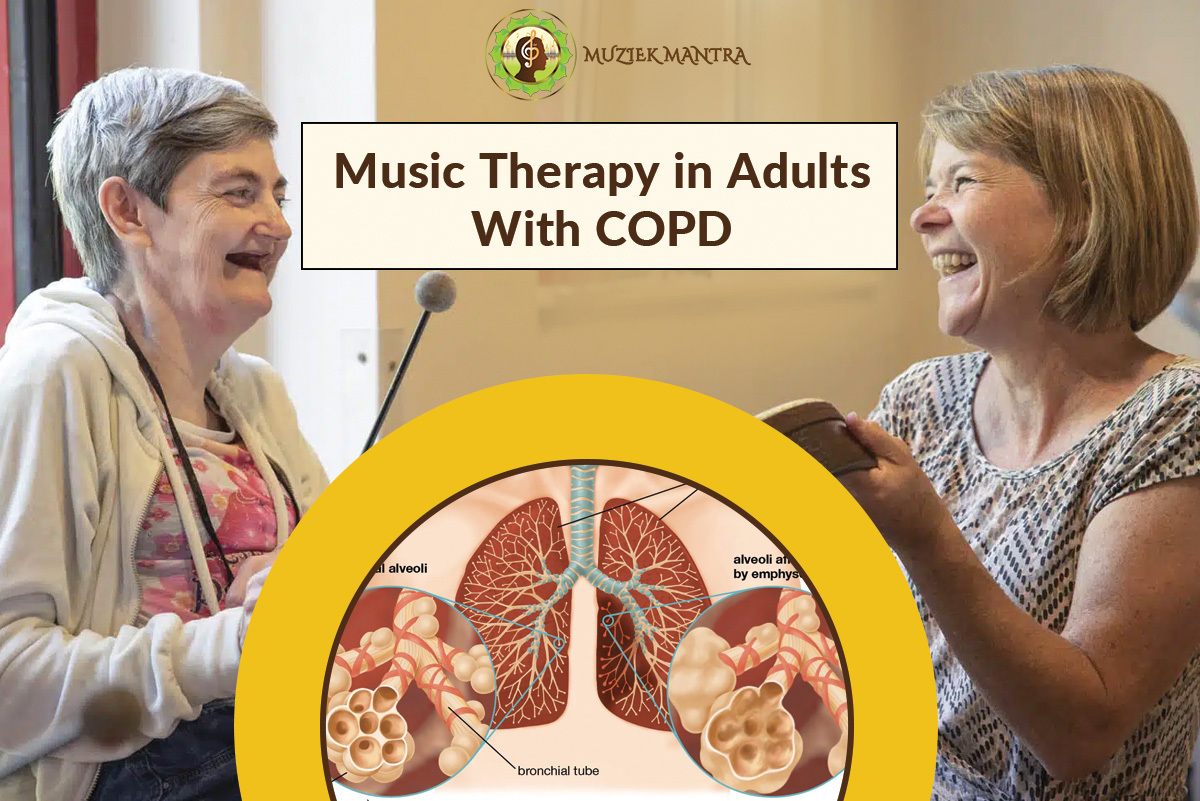Anxiety and sadness are two widespread mental health issues that continue to become more prevalent year after year. Living with anxiety may be extremely difficult, whether it is brought on by significant life changes, heredity, a medical condition, or a horrifying traumatic experience. According to estimates from 2023, the number of Effects Of Music Therapy On Anxiety disorders increased from 298 million to 374 million, or by around 25%.
An underlying problem, most frequently an anxiety condition, can occasionally be the source of excessive anxiety. In various methods, music therapy can be utilized as a scientific intervention to lessen stress and anxiety. Its effectiveness has been demonstrated to successfully prevent and treat a number of illnesses.
Knowing About Effects Of Music Therapy On Anxiety
A sensation of worry, dread, and unease is known as anxiety. You can start to become agitated and anxious, and experience rapid heartbeat. It can be a typical stress response. For instance, you might experience anxiety before a test, an important choice, or when presented with a challenging challenge at work. A patient may experience extreme phobias, panic disorder, or generalized anxiety disorder (GAD), among other types of anxiety disorders.
What Are The Symptoms Of Anxiety Disorders?
The different types of anxiety disorders can have various symptoms. But they all have a combination of:
- Anxious thoughts or beliefs that are hard to control. They make you feel restless and tense and interfere with your regular, day-to-day life. They do not go away and can get worse over time.
- Physical symptoms, such as a pounding or rapid heartbeat, unexplained aches and pains, dizziness, and shortness of breath
- Changes in behavior, such as avoiding everyday activities you used to do
Scientific Proves of Application of Music Therapy on Anxiety
There are several proven facts about the useful application of music therapy on anxiety patients. According to Bradt et al 2013, it was found that music listening was more effective than the sedative midazolam, in reducing preoperative anxiety and equally effective in reducing physiological responses. No adverse effects were identified. It was concluded that music interventions might provide a viable alternative to sedatives and anti-anxiety drugs for reducing preoperative anxiety.
The effects of music therapy on anxiety, tension, and maternal-fetal bonding in pregnant women during a transvaginal ultrasound were investigated, according to a 2011 study by Sook et al. While the control group only received prenatal care, the experimental group received prenatal care as well as a single, 30-minute music therapy session. In comparison to the control group, the music therapy group had a statistically significant decline in anxiety, but no significant differences were found in stress or maternal-fetal bonding.
According to a 2009 article by Bradt and Dileo, people with coronary heart disease (CHD) frequently experience acute distress, which puts them at a higher risk for problems. Medical patients who are experiencing anxiety or distress have had their physiological functioning improved with the use of music therapies. Numerous studies demonstrated a persistent pain-relieving effect after two or more music sessions.
How Music Therapy Helps with Anxiety
The use of music for therapeutic purposes along with the assistance of a licensed music therapist makes up the holistic treatment approach known as music therapy. It is a non-intrusive, secure, and efficient technique to enhance psychological and emotional health.
It can be utilized to supplement current treatment regimens even if it might not be a replacement for medicine or other therapeutic procedures. It offers numerous advantages to those who are struggling with anxiety.

-
Promotes Relaxation:
By soothing the neurological system, lowering muscle tension, and slowing down heart rate, music therapy can help people fall asleep. This can lessen the effects of stress and anxiety.
-
Improves Mood:
A good impact on mood and aid in emotion regulation can come from listening to music. Music can provoke emotions such as joy, grief, and even nostalgia, giving people a way to communicate their emotions.
-
Increases Mindfulness:
Being mindful involves practicing being in the present and being aware of one’s thoughts, feelings, and environment. People who use music therapy can better control their anxiety by learning to be more conscious and present.
-
Enhances Coping Skills:
People who use music therapy can improve their ability to cope with stress and anxiety. People can learn breathing exercises, progressive muscular relaxation, and other relaxation techniques by taking part in music therapy.
Also Read About: Music Therapy as a Treatment for Schizophrenia
Key Takeaway
When anxiety and sadness are present on a regular basis, it can be extremely difficult for people to function and enjoy life. Music therapy has the potential to be a successful stand-alone or supplemental treatment for mental health, enabling those with these illnesses to thrive. For people with anxiety, music therapy is a great complementary treatment option.
Without the use of drugs, music therapy lessens pain, enhances sleep quality, lowers anxiety during mechanical breathing, and triggers a relaxing response. As a result, it can be argued that music therapy aids in lowering anxiety and surrounding oneself with positive energy.



